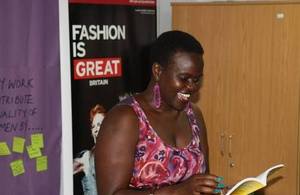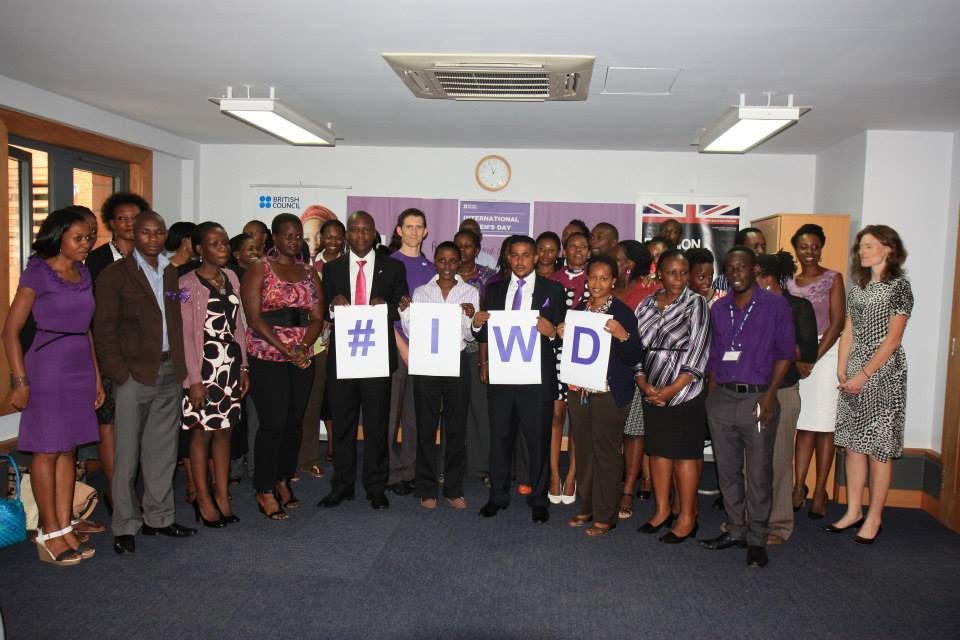High Commission marks International Women’s Day in Kampala
IWD is on Sunday 8 March 2015. UK works to support women’s rights in Uganda.

Ugandan poet Beverley Nambozo Nsengiyunva reads a specially written poem at the event to mark International Women's Day.
To celebrate International Women’s Day, which this year falls on Sunday 8 March, the British High Commission and British Council Uganda this week hosted a poetry performance by celebrated Ugandan poet, Beverley Nambozo Nsengiyunva. Beverley read a series of her own poems, including one she had written specifically for the event. Deputy High Commissioner Mary Shockledge spoke at the event about the importance of empowering women to achieve the full potential, and thanked Beverley for her performance.
Staff from across the mission attended, with many wearing purple, the official colour of International Women’s Day. Following the poetry reading, Beverley answered questions from staff about her poetry and her experiences as a female artist in Uganda. Staff also reflected on the UK’s work to support women’s rights in Uganda and talked about the women who had ‘made it happen’ in their lives.
Observed since the early 1900s, International Women’s Day is an opportunity to celebrate women’s economic, social and political achievements over the course of the last century. Governments, charities, educational institutions, women’s groups, businesses and the media will celebrate the day, with different organisations each identifying their own theme. In the UK, activity will be centred on the theme of “women’s economic empowerment and supporting women to achieve their potential”.
The UK Government believes that women will only achieve their true potential, both at home and around the world, when we have addressed the challenges of discrimination and violence against women.

Staff of the UK mission in Kampala celebrate International Women's Day
The Government of Uganda has made progress on gender equality in recent years, particularly in terms of women’s representation in government and parliament. Uganda has also achieved gender parity in primary school enrolment. But challenges remain. Only 31% of girls complete secondary education. 60% of women in Uganda have experienced violence, usually within the home. 40% of women aged 20 to 24 were married before they reached 18 and 5% of women in the Karamoja region have experienced Female Genital Mutilation (FGM).
The UK is committed to supporting the Government of Uganda in its efforts to address these challenges. This support includes:
- Working with the Ugandan Government to ensure national budgets promote gender equality;
- Supporting girls to access education;
- Providing support services to women who have experienced gender based violence;
- Supporting the UK-led campaign to end sexual violence in conflict.
- Supporting Uganda in ending Child, Early and Forced Marriage (CEFM) and Female Genital Mutilation (FGM) in follow-up to the Girl Summit.
None of this work would be possible without the support and commitment of our partners in Uganda. We would like to take this opportunity to thank all the organisations promoting women’s rights in Uganda and the inspiring women we work with. #IWD #MakeItHappen